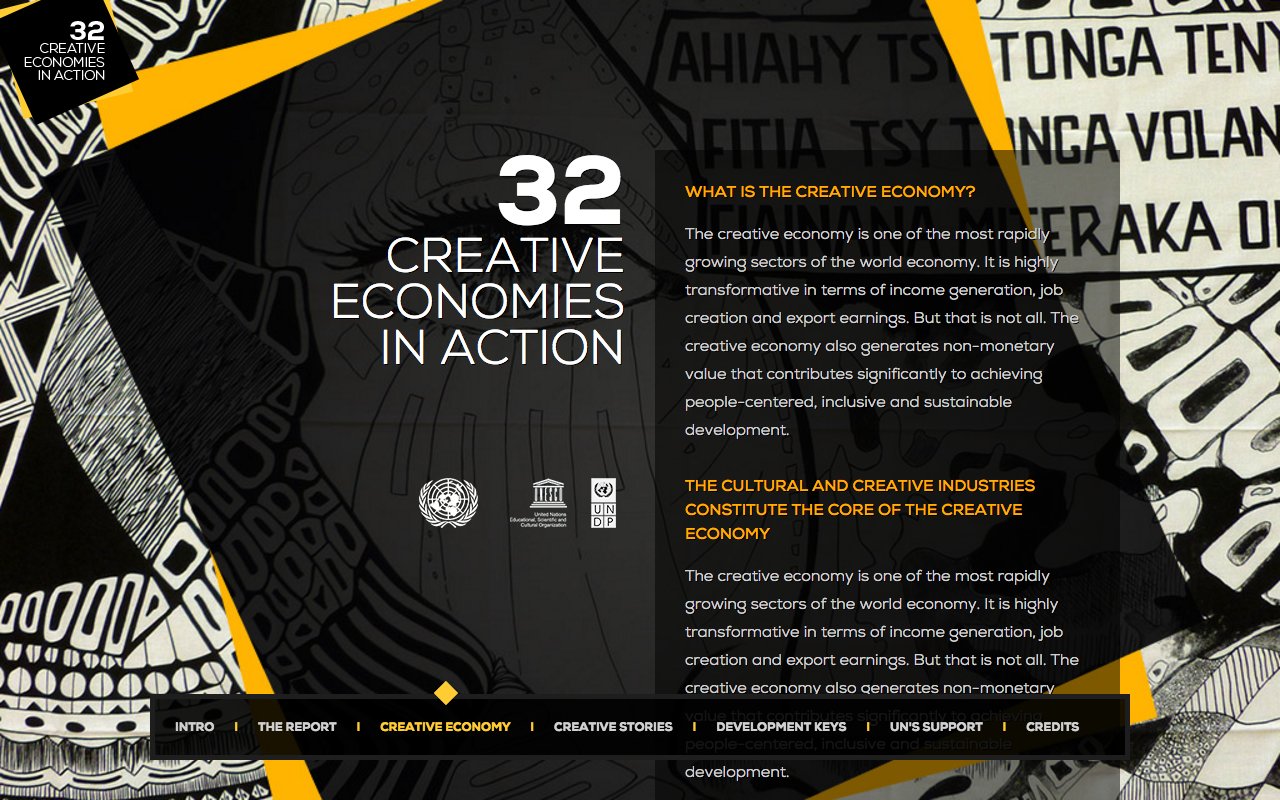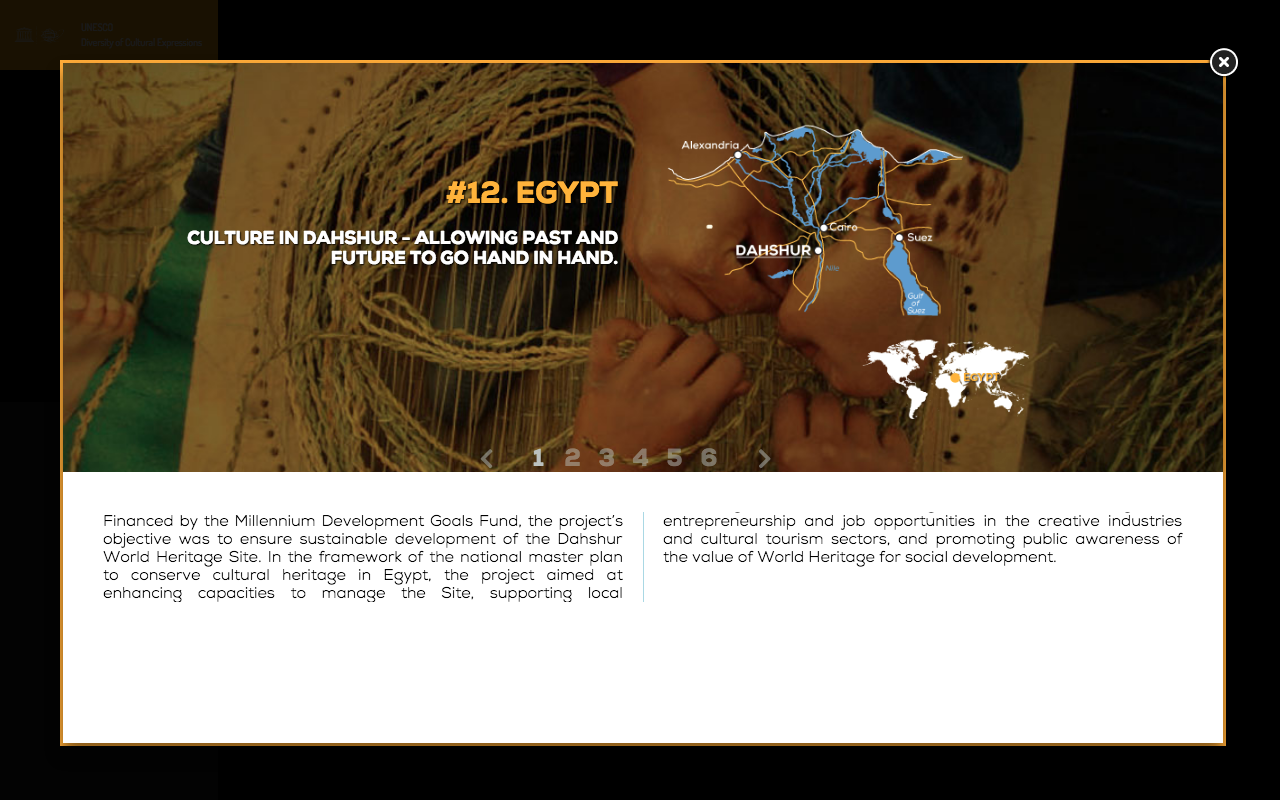These will be your last words.
Make them count.
Nuff said.
One expression, that conjures up a universe of its own.
One sentence, that sums up an entire body of work.
One phrase, that’s synonymous with the person who coined it.
To us, that’s the power of a slogan.
Context
In 2013, UNESCO launched its first special edition of ‘The United Nations Creative Economy Report’, during the 37th session of the General Conference, in Paris, France. Alongside its printed version, an online version of the report was also being launched, showcasing 32 case studies that illustrated the power of the creative economy. 32 headlines were created, one for each story.
Concept
’Creative economy’.
Some headlines were more intriguing (Benin and Guatemala). Others were more playful (Argentina and Bosnia Herzegovina). There were the inclusive ones as well (China and Panama). No matter how witty or clever the headline was, this concept was the common denominator linking every single story.
MATRIX
Context
Matrix is a sports gym located in São Paulo. It offers various martial arts classes, but also different kinds of fitness training and workouts, which is why its original slogan read “Martial Arts & Fitness”.
In that regard, Matrix was no different than almost every other gym in the city. Translation to that was: given the amount of gyms fighting for the same market, acquiring new members and keeping current ones became a daunting task, with price being the only selling point.
Concept
’Respect’.
Through interviews with the gym’s instructors, members and also its owners, it became clear that martial arts was the club’s core business, in terms of revenue and also reputation. So that was step 1: to position itself as a martial arts club, instead of a general sports gym.
Step 2 is where the concept came into play. Instead of focusing on competition (which is what most martial arts clubs do when positioning themselves), we decided to go on an entirely different direction and focus on the one single movement every martial art has in common: bowing as a sign of respect. In Portuguese, the slogan carries a twofold meaning: “respect for martial arts” and “respect through martial arts”
Context
OMNARIS Nasal Spray is indicated for the treatment of nasal symptoms associated with seasonal allergic rhinitis. The product was launched in Brazil during the 19th World Congress of the International Federation of Oto-Rhino-Laryngological Societies, which was held in Sao Paulo.
A complete marketing campaign was requested from us, including a slogan.
Concept
’Innovating well-being’.
This new drug was based on the Ciclesonide molecule, which made Omnaris the first of its kind to bring such an innovative component to the treatment of allergic rhinitis. In a way, patients would literally be “inhaling innovation”. The result was the ability to breathe fully and freely, an act that we all take for granted when it comes to our well being.
The slogan we proposed read “Inhaling innovation. Exhaling well being”. In Portuguese, just as in English, the verb inhale carries the same meaning as the verb inspire, which gave the slogan a poetic twist to it.
Avalancia
Context
During brainstorm sessions and conversations with Alavancia’s board of directors, two words stood out: ‘moment’ and ‘place’. It was not uncommon for them to start meetings by saying things like: “at this particular moment…” or “we’re in a different place, right now…”. They were clearly speaking about their mindset, and where their heart was at at the time. And that was: “We’re seasoned enough to have gathered decades of experience in different fields. What do we do with it?” .
Concept
’Divide and conquer'.
Our answer to that question came in the form of this slogan: “Sharing experiences. Multiplying results.” It became clear to us that Avalancia’s team was mature and experienced enough to understand that dividing one project between all of them should never be about one employee trying to show the other up, but instead, as an opportunity for everyone to chip in, working individually within the collective. In Portuguese, “dividindo” refers to the mathematical act of division, as well as the act of sharing.






















































